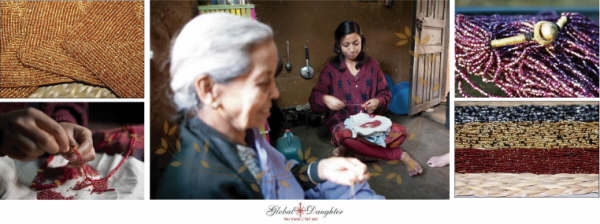Fair trade helps people and our planet, providing a system that provides economic development for artisans, farmers and their families and sustainable development for our planet's future.
This month, give a minute to think about where some of the products you use daily actually come from. That would mean the coffee you drink in the morning, the piece of chocolate you savor with your red wine at night, the olive oil you use to dip your bread. The farmers that produce these products often are unpaid, isolated and live in a cycle of poverty.
Fair Trade Certified tea, coffee, vineyard, cocoa and vegetable farmers and workers come together to form joint bodies where they set fair prices for their products and make democratic decisions about how to best improve their business, their community and, of course, their product. That means they have decision making power over their land and therefore, the power to uplift themselves out of poverty. Purchasing fair trade sugar from small-scale farmers in Paraguay, for example, ensures higher incomes for sugar cane growers, who often face unpredictable swings in the prices paid for their crop.
Purchasing fair trade products is a lot easier than you think. There are plenty of resources that provide information about where you can shop fair trade products and how you can be a part of the Fair Trade Movement. The little effort it takes to be an informed consumer makes a BIG difference.
Start Here:
http://www.globaldaughter.com/ Fabulous fair trade handicrafts made by women in Nepal
http://www.equalexchange.coop/ Fairly traded tea, coffee, chocolate and snacks
http://www.groundsforchange.com/ All Grounds for Change coffee is 100% fair trade and organic certified
http://www.betterearthflowers.com/ A collection of fair trade flowers- straight from the farm
http://www.fairtradefederation.org/ The ultimate resource for all things fair trade
Wednesday, October 14, 2009
Monday, October 5, 2009
A Third Way to Think About Aid
The debate over foreign aid often pits those who mistrust "charity" against those who mistrust reliance on the markets. Jacqueline Novogratz proposes a middle way she calls patient capital, with promising examples of entrepreneurial innovation driving social change.
"If we take the notion of a global innovation fund we can invest not directly in government, though we will have the government's blessing, nor in international experts, but in the many existing entrepenurs and civil society members who are already building wonderful innovatioins that are reaching people all over the country."
"If we take the notion of a global innovation fund we can invest not directly in government, though we will have the government's blessing, nor in international experts, but in the many existing entrepenurs and civil society members who are already building wonderful innovatioins that are reaching people all over the country."
Subscribe to:
Posts (Atom)
